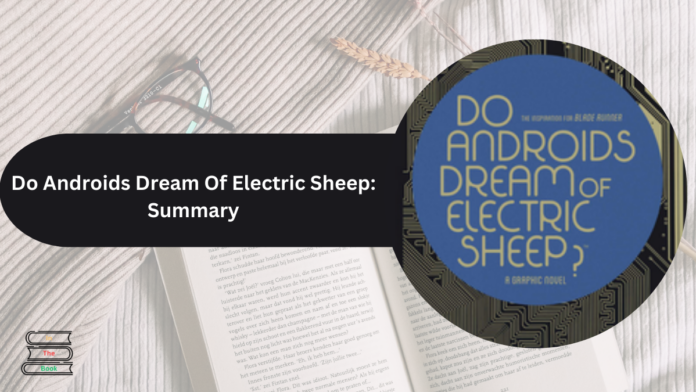Contents
- An In-Depth Exploration of Philip K. Dick’s Do Androids Dream Of Electric Sheep
- The Post-Apocalyptic World: A Desolate Future
- The Android Dilemma: Existential Questions and Emotional Complexity
- Rick Deckard: The Bounty Hunter’s Moral Journey
- The Symbolism of Electric Sheep: Artificiality and Desire
- Empathy and Humanity: The Essence of Existence
- The Technological Cautionary Tale: A Warning for the Future
- Conclusion
An In-Depth Exploration of Philip K. Dick’s Do Androids Dream Of Electric Sheep
Philip K. Dick’s Do Androids Dream Of Electric Sheep is a cornerstone of science fiction literature, renowned for its profound examination of humanity, technology, and empathy. Published in 1968, this visionary novel delves into the complexities of human identity in a future where technology has begun to blur the line between man and machine. This detailed analysis will explore the novel’s setting, themes, characters, and the underlying philosophical questions it poses.
The Post-Apocalyptic World: A Desolate Future
In Do Androids Dream Of Electric Sheep, Philip K. Dick presents a stark and dystopian vision of the future. The novel is set in the aftermath of World War Terminus, a catastrophic nuclear conflict that has left Earth in a state of environmental ruin. The landscape is ravaged by radiation, and the once-vibrant planet is now a wasteland with a perpetual grey sky. The few remaining humans live in a harsh and uninhabitable world, struggling to survive amidst the ruins.
Developing advanced androids, specifically the Nexus-6 models, becomes crucial in this bleak environment. These androids were created to serve as labourers and companions, designed to meet the needs of the dwindling human population.
However, their advanced artificial intelligence and emotional capabilities make them question their existence and purpose, setting the stage for the novel’s central conflicts.
The Android Dilemma: Existential Questions and Emotional Complexity
A significant theme in Do Androids Dream Of Electric Sheep is the androids’ existential crisis. As the Nexus-6 models experience emotions, they confront their identity and place in the world. This development raises profound questions about the nature of consciousness and what it means to be truly alive.
The novel challenges the traditional boundaries between humans and machines, presenting androids that exhibit complex emotional responses. The central moral dilemma concerns whether these emotions are genuine or sophisticated imitations. This existential questioning mirrors philosophical debates about the nature of artificial intelligence and the possibility of machines experiencing true consciousness.
Rick Deckard: The Bounty Hunter’s Moral Journey
Rick Deckard, the novel’s protagonist, is a bounty hunter assigned the task of “retiring” (killing) six rogue Nexus-6 androids that have escaped to Earth. Deckard’s role symbolizes the novel’s exploration of morality and identity. His journey is a physical pursuit and a psychological and emotional exploration.
Deckard grapples with his sense of morality and empathy throughout the novel. As he encounters the Nexus-6 androids, he begins to question the ethics of his mission and the true nature of humanity. His evolving feelings towards the androids highlight the novel’s exploration of empathy and the moral complexities of defining what it means to be human.
The Symbolism of Electric Sheep: Artificiality and Desire
The novel’s title, Do Androids Dream Of Electric Sheep, is a poignant reference to the artificial pets that populate the post-apocalyptic world. In a society where real animals have become rare and highly coveted, electric sheep symbolize the synthetic nature of the world. These mechanical pets represent the extent to which artificial constructs have replaced reality.
The electric sheep symbolizes the androids’ desire for authenticity and longing to experience genuine emotions and connections. This yearning reflects the broader theme of the novel, which examines the quest for humanity in a world dominated by artificiality.
Empathy and Humanity: The Essence of Existence
A core theme of Do Androids Dream Of Electric Sheep is the exploration of empathy as a defining characteristic of humanity. The novel suggests that empathy sets humans apart from androids but raises questions about its limits. Can androids truly experience empathy, or is it merely a sophisticated simulation?
The novel presents a nuanced view of empathy, suggesting that it is a complex and multifaceted aspect of human nature. Through the interactions between Deckard and the androids, Dick challenges readers to consider the implications of artificial beings that can mimic emotional responses. The ambiguity surrounding the androids’ ability to experience genuine empathy invites readers to reflect on the nature of consciousness and the boundaries of human identity.
The Technological Cautionary Tale: A Warning for the Future
Do Androids Dream Of Electric Sheep is a cautionary tale about the potential dangers of advanced technology surpassing human intelligence. The novel highlights the ethical and existential risks associated with creating beings that closely resemble humans in both appearance and emotional capacity.
As technology continues to advance in our world, Dick’s novel remains relevant in its warnings about the potential consequences of artificial intelligence. The evolving nature of technology and its impact on human society underscores the importance of maintaining empathy and compassion as we navigate the challenges of a rapidly changing world.
Conclusion
Philip K. Dick’s Do Androids Dream Of Electric Sheep is a profound and thought-provoking work that continues to resonate with readers. Through its exploration of a dystopian future, existential questions, and the nature of empathy, the novel provides a timeless reflection on humanity’s relationship with technology.
As we confront our technological advancements, Dick’s visionary tale serves as a powerful reminder of the enduring importance of empathy and the complex interplay between human and machine.
Click Here To Read More

Ross, an exam specialist with a passion for education, writes comprehensive articles on exam results and admit cards. His expertise ensures students receive reliable information and useful tips to excel in their exams.



























